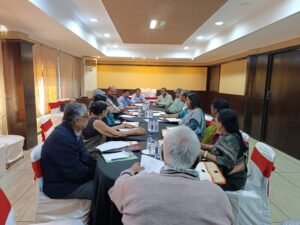
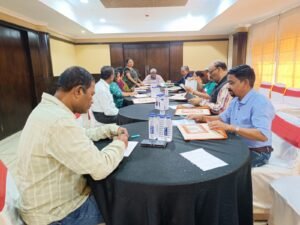


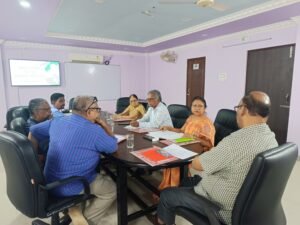
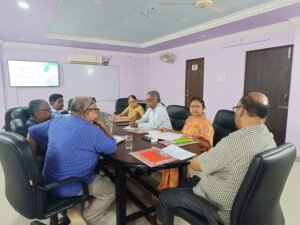
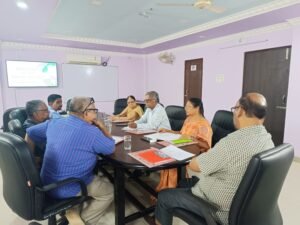
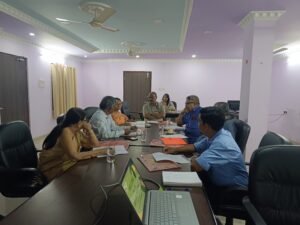
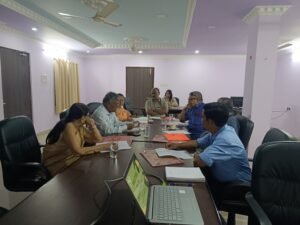
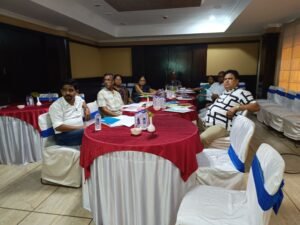
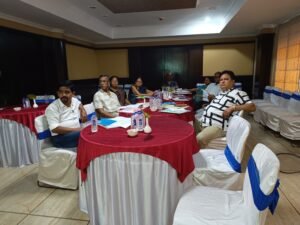
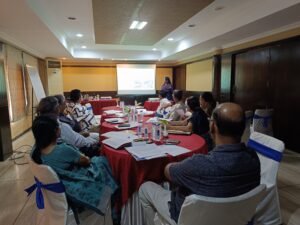
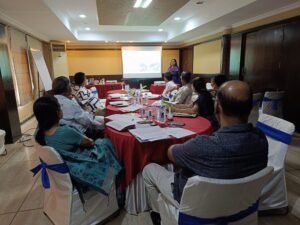
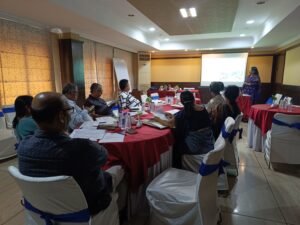
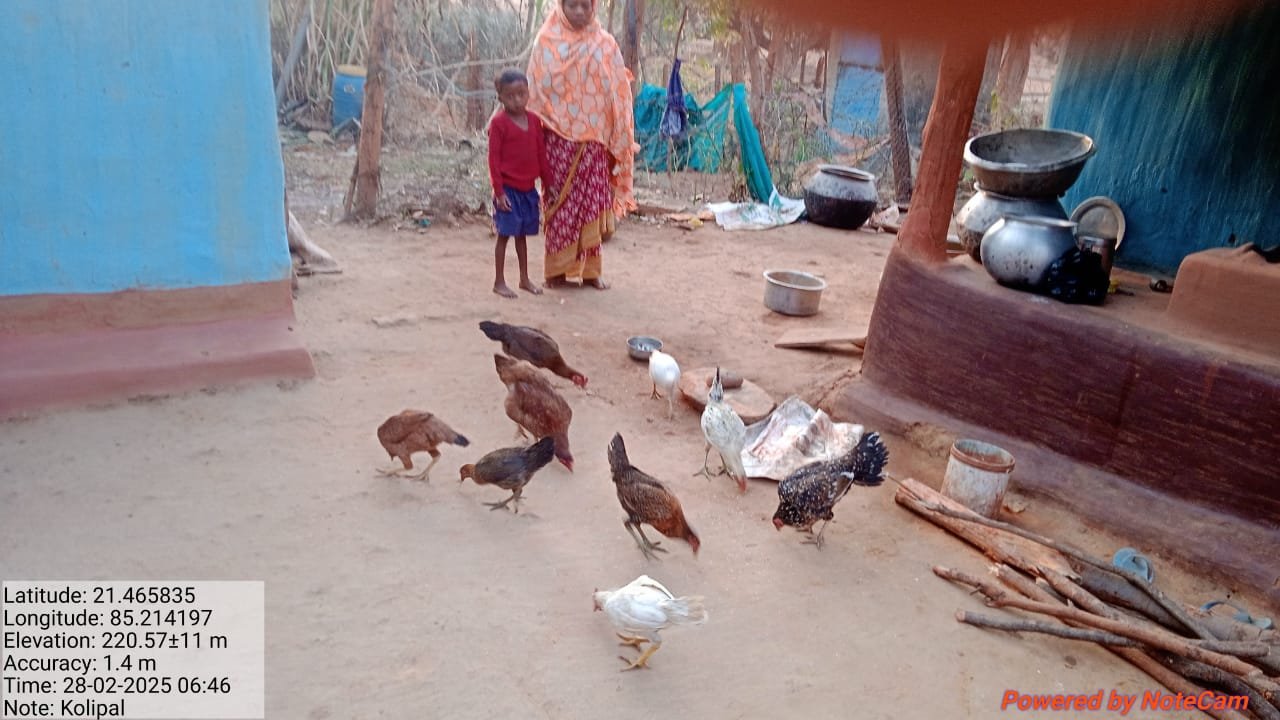
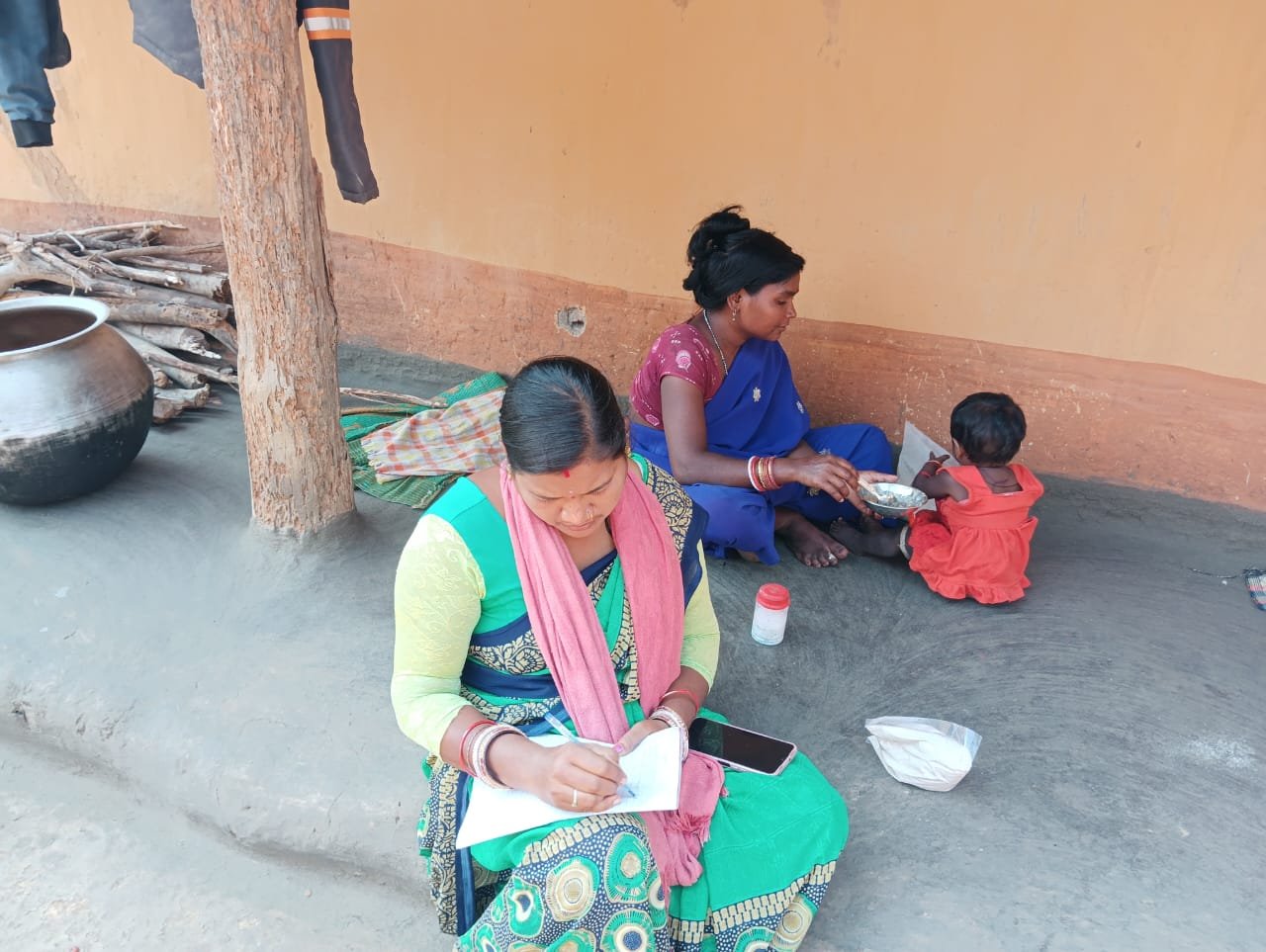
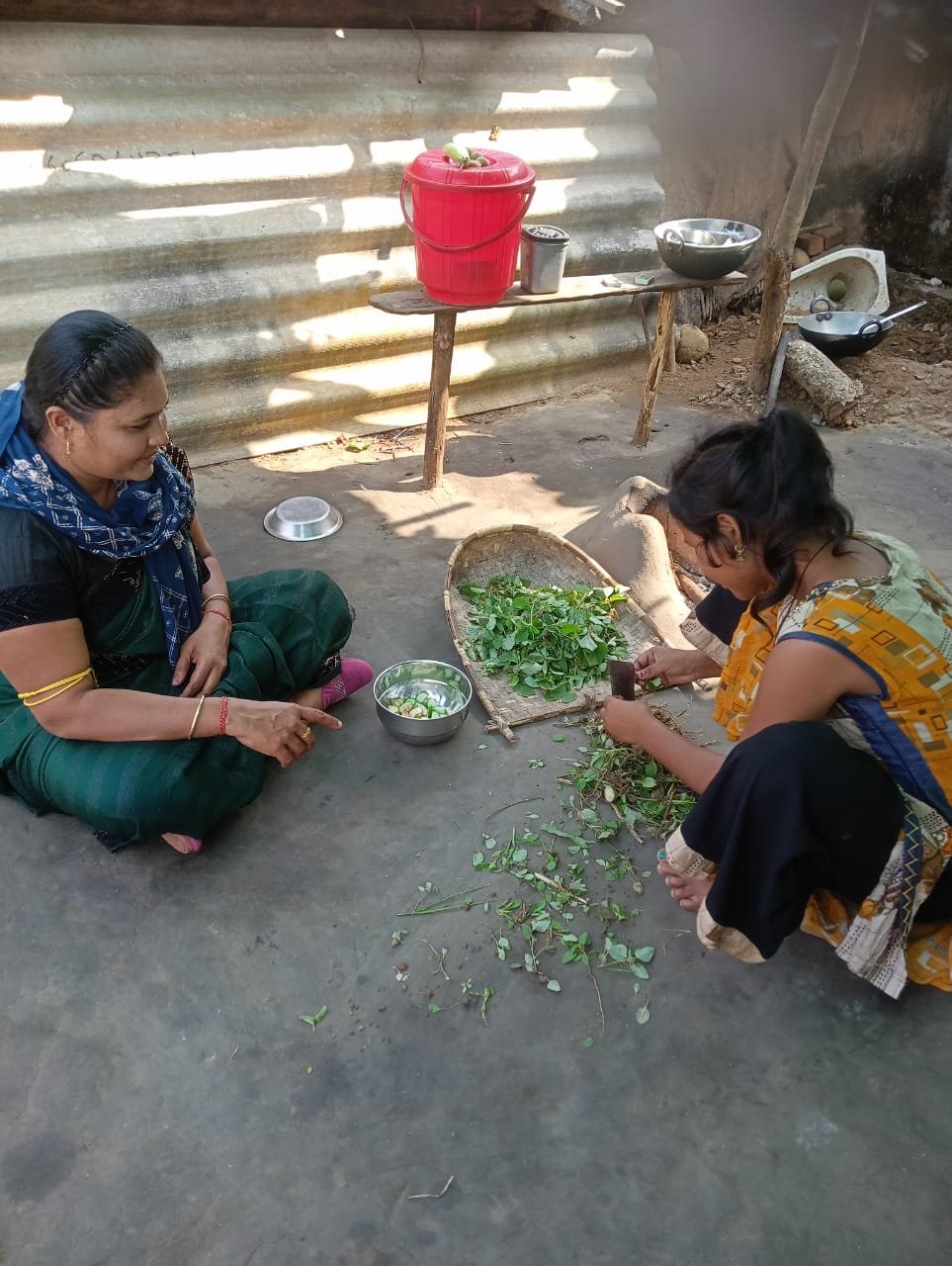
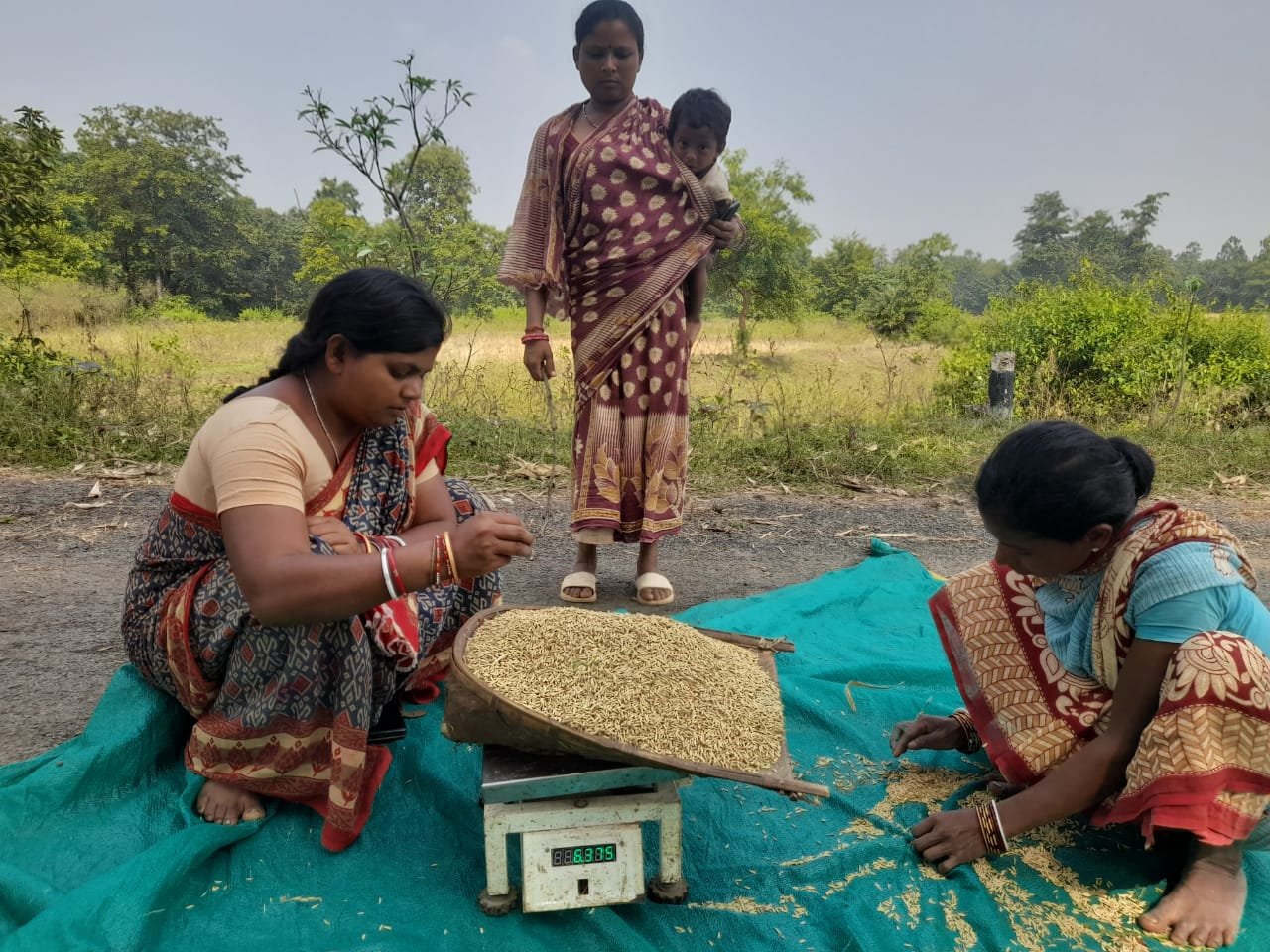
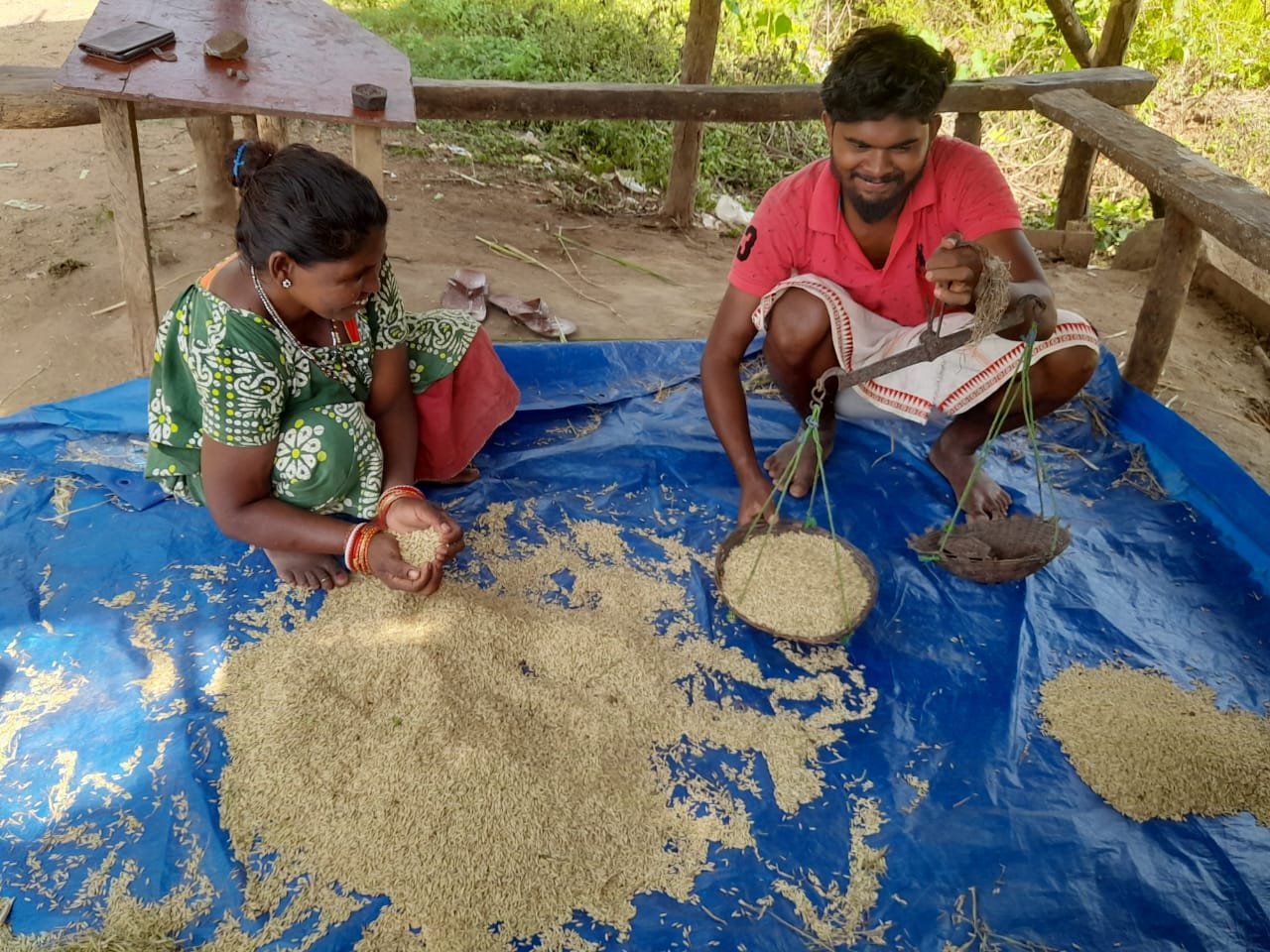

Padmini Behera – From Daily Wage Labour to a Confident Farmer
Padmini Behera is a hardworking woman from Begunia village. She lives with her husband, one son, and two daughters — a family of five. Life has not been easy for them. Coming from a poor background, the family mostly depended on daily wage labour to meet their daily needs. Padmini and her husband worked whenever they found work, but the income was never enough to lead a stable life.
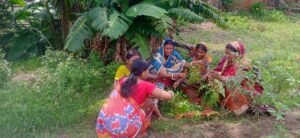
Padmini owns 1.6 acres of land. However, only 1 acre of this land was being used for farming — mainly for paddy cultivation during the rainy season. The remaining 0.6 acres had been lying fallow for years because they lacked resources and knowledge to make proper use of it. Apart from farming, Padmini also collected forest produce like leaves, fruits, and wood from nearby forests to sell in the market. That small earning also helped in running the household.
Things began to change in 2023, when Padmini came in contact with Sambandh, a development organization working in her area. Under their Kitchen Garden/Nutrition Garden initiative, Padmini received a seed kit and fencing materials to set up a home garden. She was also given training on organic farming, including how to prepare organic manure and how to manage pests without using chemicals.
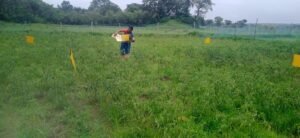
Motivated by the training and support, Padmini decided to make good use of the 0.6-acre fallow land. With the help of Sambandh, she received seeds of maize and cowpea and started farming on the previously unused plot. It was the first time she tried something new apart from paddy, and she gave it her full effort. Her hard work paid off — she earned a good income of ₹17,980 from the sale of maize and ridge gourd. This was a big achievement for her and gave her a lot of confidence.
Inspired by the success, Padmini did not stop there. She continued to farm on the same land. Now, she grows tomato, radish, potato, and ridge gourd. She also maintains her kitchen garden regularly, which provides her family with fresh green vegetables like spinach, coriander, and other leafy greens. This has improved the nutrition level of her family, as they now eat vegetables grown in their own backyard.
Along with farming, Padmini still does daily wage work whenever she can, but now she has an additional source of income and food from her land. She has become more confident and aware of how to use organic methods to grow crops and make the best use of the land she has.
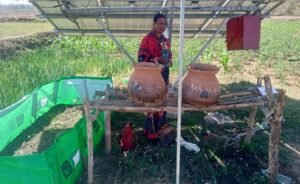
Padmini Behera’s story is a strong example of how timely support, training, and a little encouragement can bring a big change in the life of a woman farmer. With the help of Sambandh, she has not only increased her income but also ensured better food for her family. Her journey from a daily wage labourer to a confident farmer is truly inspiring for many other women in her village and beyond.
Project Office:
SAMBANDH
Dhalabani Village, Po: Jashipur, Dist.: Mayurbhanj – 757034, Odisha
Cell: +91- 8249819807 / 9778205501
SAMBANDH
At- Chamakpur, Jualikata Chowk, Bhimakunda Road, Thakurmunda, Mayurbhanj – 757038, Odisha
Cell: +91- 8249144042
SAMBANDH
Asiana Eco Centre, At. Kochila Nuagaon, Choudwar, Cuttack – 754028, Odisha
Cell: +91- 8917324400
SAMBANDH
At. / Po. - Kundheigola Via: - Reamal, Dist.:- Deogarh- 768109, Odisha
Cell: +91- 9090276007
SAMBANDH
In front of SBI, Pallahara
At. / Po.- Pallahara, Dist. : - Angul - 759119, Odisha
Cell: +91- 9090276007
Sambandh
C/o-Abani kanta Behera
Near Shiba Mandira, Basingi
At/Post-Basingi
PS-Bahalda
Dist-Mayurbhanj
Pin-757046
Sambandh
C/o- Krushna Chandra Rana
At/PO: Podasul
Via- Raj-Nilgiri
Dist- Balasore
Pin- 756040
Sambandh
At.Dalki
PO: Badampaharh
Kusumi,
Mayurbhanj